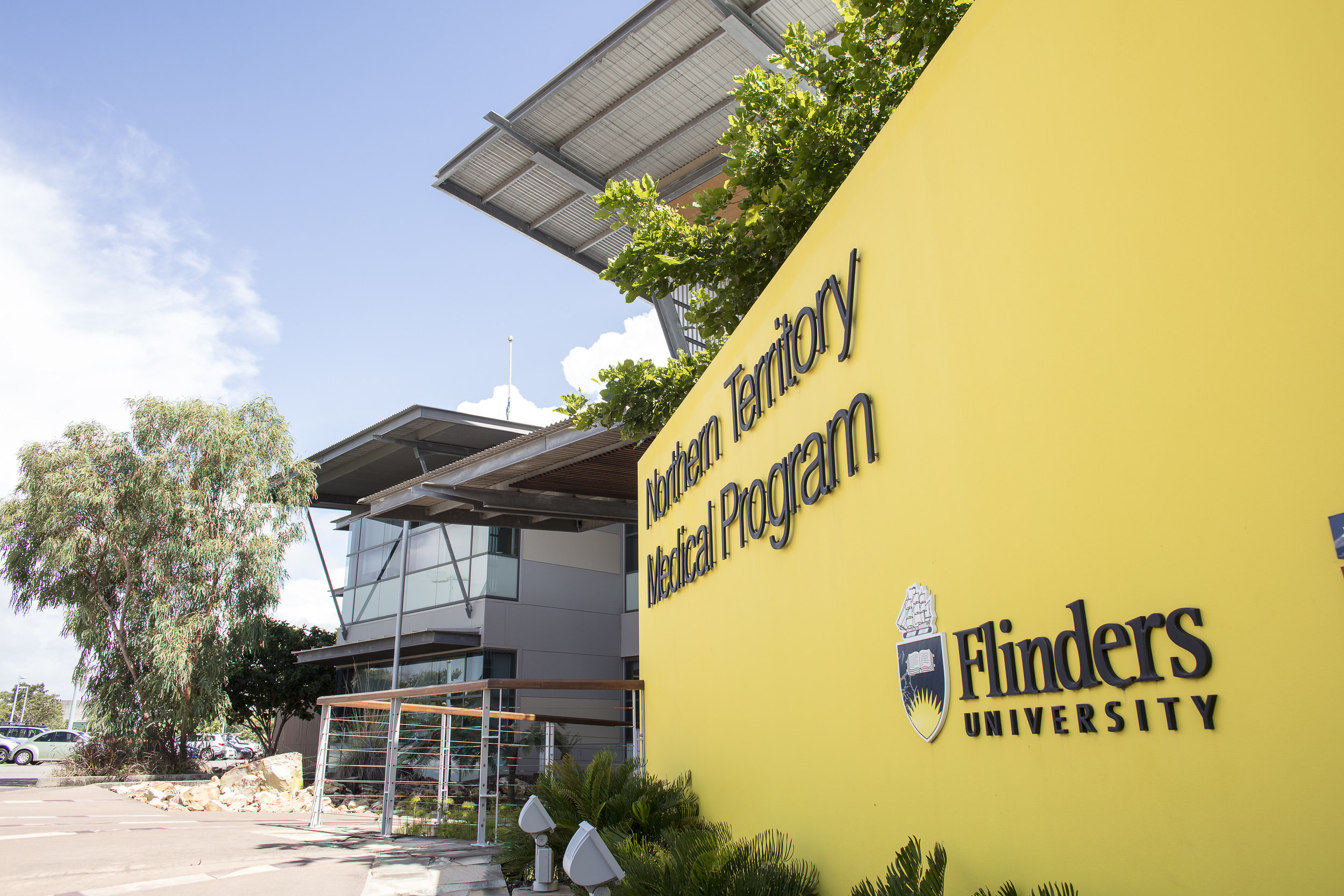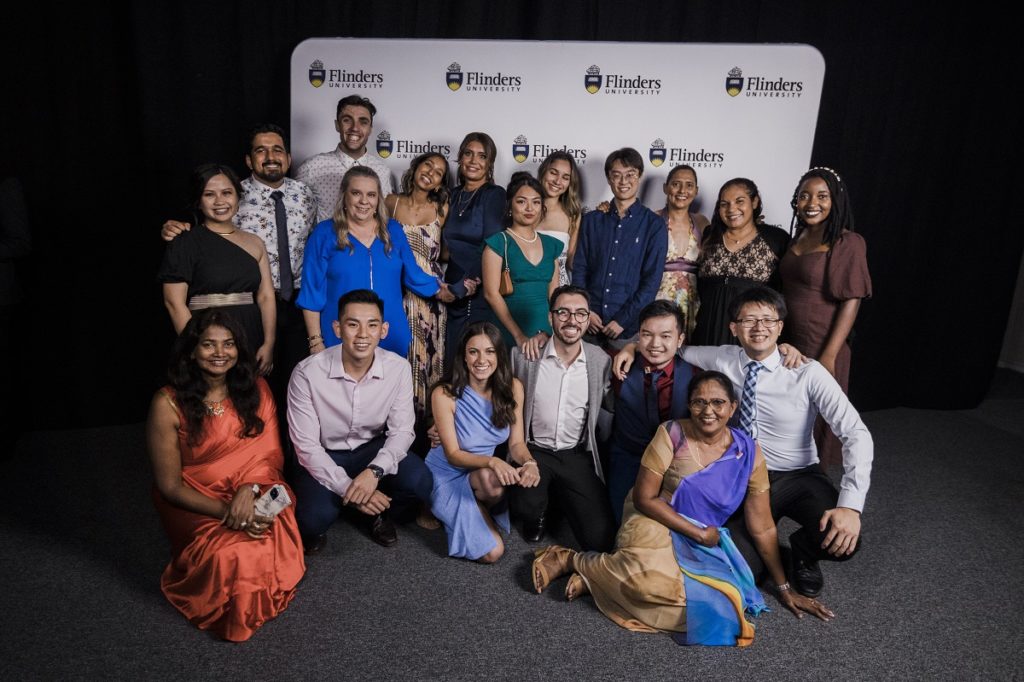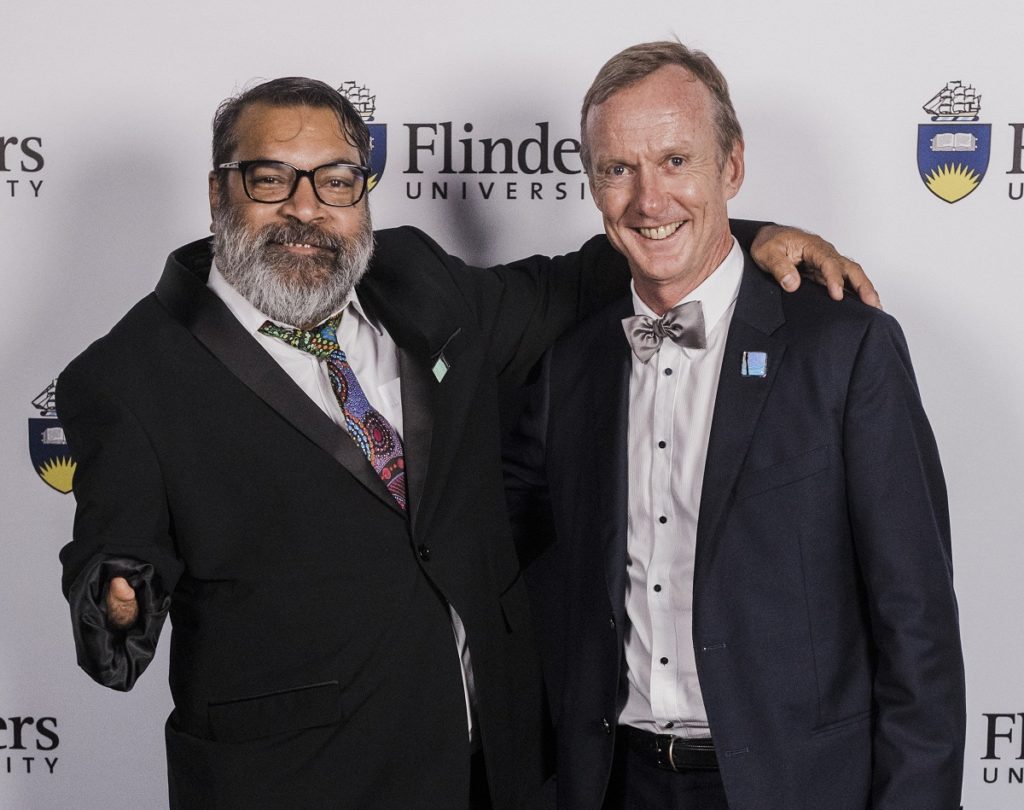
Flinders University has this month celebrated the 10th anniversary of its Northern Territory Medical Program, highlighting the University’s continued commitment to medical education in the NT, with particular strengths in preparing graduates to work in Indigenous and remote health.
Celebrations were held on Friday October 1 in Darwin and online, starting with a a day-long symposium and the NT Supervisor Awards, before culminating in a gala dinner attended by staff, alumni and members of the community.
Flinders has had a continuing presence in the Northern Territory for more than 20 years – first as a rural clinical school in Darwin and, since 2011, also delivering the full graduate entry Doctor of Medicine, with an undergraduate pathway in partnership with Charles Darwin University.
Taught from campuses across Larrakia land (Darwin); Yolngu land (Nhulunbuy); Jawoyn, Wardaman and Dagoman land (Katherine); Warumungu land (Tennant Creek); and Arrernte land (Alice Springs), the program offers an internationally recognised Doctor of Medicine, with priority places for Northern Territory residents and Aboriginal and Torres Strait Islander people.
Flinders University President and Vice-Chancellor Professor Colin Stirling says the anniversary is a chance to reflect on the transformative work of the program and celebrate the many years of Flinders’ authentic engagement with – and meaningful contribution to – rural and remote communities in the Northern Territory and beyond.
“To date, over 131 students have graduated from the program, the majority of whom continue to make great contributions to improving the health of all Northern Territorians,” says Professor Stirling.
“Most importantly, through our valuable partnership with Charles Darwin University, we have delivered on the primary aim of the Program: to produce graduates who are fit-for-practice in the unique context of the Northern Territory.”

Professor Jonathan Craig, Vice President and Executive Dean of the College of Medicine and Public Health, says Flinders University is very proud of the program’s extensive rural and remote footprint, including strong community relationships and partnerships.
“This includes our close partnership with health services in the Top End and Central Australia who are key to the ongoing success of this NT-based training for the future medical workforce,” says Professor Craig.
“Since the program’s inception, the NTMP has been providing nearly 50 percent of the new interns required in the Territory. Graduates to date have included nine Aboriginal doctors, with another six Aboriginal graduates likely in 2021.”

Flinders’ activities in the Northern Territory also include the Poche Centre for Indigenous Health (Poche SA+NT), postgraduate remote area health professional education, and delivery of the Commonwealth funded Rural Health Multidisciplinary Training Program, including Remote and Rural Interprofessional Placement Learning NT (RIPPL NT) and the Flinders NT Regional Training Hub.
Dr Kelum Priyadarshana, Clinical Dean at Top End Health Service, says one major goal of Flinders’ presence in the Northern Territory is to improve the health of all Territorians with a particular focus on Aboriginal and Torres Strait Islander people, but this couldn’t be achieved without the right graduates making their way into the medical system.
“Students in the NTMP spend a significant time gaining experience in the Royal Darwin and Palmerston Hospital, as well as hospitals and clinics in our small regional towns and remote settings, learning about the very unique landscape that is health in the Northern Territory,” says Dr Priyadarshana.
Director of the Northern Territory Medical Program and long-term Territory GP, Associate Professor Emma Kennedy, says it’s important for the region to have a strong local program.
“We know students who are originally from the region, or spend a significant amount of time here, are more likely to stay on,” says Dr Kennedy.
“We are improving and extending our program all of the time, and the Northern Territory Medical Program is vital to producing graduating doctors committed to the region who can collaborate with local and Aboriginal people and organisations to improve the health of all Territorians.”
Flinders University is delighted to have renewed its commitment to the Northern Territory government to continue the medical program for at least the next three years, with further pathways in development to allow both Flinders and CDU to continue to attract a diverse cohort of students into the program for the foreseeable future.
Key facts
- 1997: Flinders Rural Clinical School established enabling students to complete medical studies in the Northern Territory and/or rural South Australia
- 2011: Established Northern Territory Medical Program – an end-to-end medical program based entirely within the NT funded by both Commonwealth and Territory governments
- Program delivered: Doctor of Medicine
- 2014: First NTMP MDs graduate
- 24 places for domestic students are available each year: 12 places for graduate entry, and 12 places from the Charles Darwin University Bachelor of Clinical Science pathway
- The program offers entry through an Indigenous Entry Stream to enable Indigenous graduates living in the NT the opportunity to study medicine closer to home.
- Campuses across Darwin, Nhulunbuy, Katherine, Tennant Creek and Alice Springs
- Since the NTMP began:
- 131 students have graduated
- 63 percent of graduates have taken up junior doctor positions in the NT
- 90 percent of students in the program have been from the Northern Territory
- Nine Aboriginal doctors have graduated, with another six set to graduate in 2021

